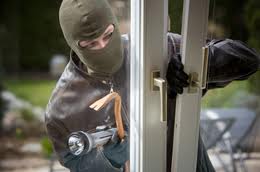San Carlos Home Invasion Shatters the Dreams of Canadian Couple

The increase in home invasions in Panama's Beach areas has many expat residents in the area worried about their safety. In the past 2 months there have been several incidents that involved violence - victims being tied up, held down or beaten. The question in everyone's mind is, 'will I be next' . People also wonder what is being done to eradicate the criminal element that is driving foreigners back to their home countries. The most recent incident happened in San Carlos at 7am on Friday, January 11th. It changed the lives of a Canadian couple who had just bought their dream house on the beach. The couple (whose names are withheld for safety), are a polite, soft spoken, man and woman in their late 50s. In speaking with them, I am amazed at the respect they have for Panama and its people, even considering the nightmare they have just gone through. The Canadians researched Panama for three years before making the move. They even factored in the possibility of being robbed in a third world country, but never, ever thought the robbery would come in the form of a home invasion with violent intruders. They had only called Panama home for 6 weeks, before they were victimized in an invasion that left them so traumatized that they are not able to return to their Panama home.
On the day in question, 3 men rushed the woman as she opened her front door at 7am. The invaders had jumped over the front gate, which had spikes and barbed wire. Once on the property grounds, they waited until the door was opened. In the hour and a half that followed, the men hog tied the couple, pointed guns at their heads, dragged and beat them. They demanded to know where the AK-47 was, which the couple did not have. They demand money, which was given. They took bank cards, and while one of them took the couple's car to go to the bank, the others trashed the house looking for anything they could take, and helped themselves to beer from the fridge. During the burglary, they communicated with each other using bird calls and whistles. Interestingly the Canadians heard the same bird calls during the nights in the days preceding the invasion, and thought it odd for birds to be so active at night.
The incident went on for much of 1 1/2 hours. Things changed when the lady who tends to the yard plants made an unscheduled visit. The men threatened to kill this woman, if the Canadians warned her in any way. Seizing an opportunity, the Canadian woman told the invaders that the plant-lady would need to talk to her. This led the men to make the decision to leave. They told the plant-lady that they were just there to collect some money for work done. As they were leaving, the Canadian woman noticed that the men had laid out knives and a machete. The couple felt that the invaders meant to do them bodily harm, that could end up in them being killed. During the course of invasion, the couple were pushed down on the ground and dragged down stairs. The man was beaten and kicked. The couple called the men "cruel", as the harshness inflicted was unnecessary.
Like the British couple who suffered a home invasion a couple of months ago, these Canadians will be putting their home on the market and will soon be leaving Panama. For them, the dream of a retired life on a tropical beach is over. In retrospect they feel, they realize they were watched and targeted. Spiked fences and barbed wires did not keep intruders out. The invaders were patient, possibly waiting many hours, before the front door was opened. They were silent in the waiting and in the working of the house. The couple feel that a dog would not have posed an obstacle, "they would have dealt with it with one swipe. They were organized, prepared and planned. This was not the first time they had done this".
This Canadian couple from British Columbia spoke to me with the hope that talking to me could help spur community conversations about safety and looking out for each other. While they feel that nothing could have kept the intruders out of their home, some preventative measures, neighborhood watches and generally looking out for each other, could encourage career criminals, who are free to prey on the community, to look somewhere else for a score.
